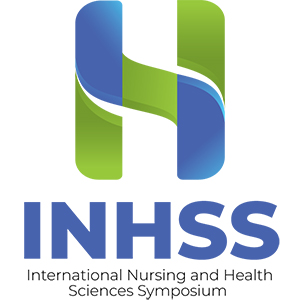Mother’s knowledge as a dominant factor for the success of exclusive breastfeeding in Indonesia

Published: 9 February 2023
Abstract Views: 1083
PDF: 343
Publisher's note
All claims expressed in this article are solely those of the authors and do not necessarily represent those of their affiliated organizations, or those of the publisher, the editors and the reviewers. Any product that may be evaluated in this article or claim that may be made by its manufacturer is not guaranteed or endorsed by the publisher.
All claims expressed in this article are solely those of the authors and do not necessarily represent those of their affiliated organizations, or those of the publisher, the editors and the reviewers. Any product that may be evaluated in this article or claim that may be made by its manufacturer is not guaranteed or endorsed by the publisher.
Similar Articles
- Kamsatun Kamsatun, The effect of family empowerment through education and mentoring on increasing knowledge of exclusive breastfeeding , Healthcare in Low-resource Settings: Vol. 11 No. 2 (2023): Transforming Healthcare in Low-Resource Settings: a Multidisciplinary Approach Towards Sustainable Solutions, Part I
- Ernani Setyawati, Endah Wijayanti, Ita Kusumayanti, Damai Noviasari, Sekar Handayani , Novi Pasiriani, Eli Rahmawati , Effectiveness of the SETIA (Self Empowering Woman, Empathy, Trust, Intimate and Affection) program in enhancing exclusive breastfeeding in Indonesia , Healthcare in Low-resource Settings: Vol. 12 No. 3 (2024): Transforming Healthcare in Low-Resource Settings: a Multidisciplinary Approach Towards Sustainable Solutions, Part III
- Deswani Deswani, Dea Eki Rahmawati, Yuli Mulyanti, Syafdewiyani Syafdewiyani, Rita Ismail, Sri Djuwitaningsih, Social media utilization and knowledge levels in exclusive breastfeeding among mothers in Indonesia , Healthcare in Low-resource Settings: Vol. 12 No. 1 (2024): Transforming Healthcare in Low-Resource Settings: a Multidisciplinary Approach Towards Sustainable Solutions, Part II
- Nurus Safaah, Esti Yunitasari, Budi Prasetyo, Mira Triharini, Pipit Feriani, Enhancing maternal role achievement and breastfeeding success through health belief model intervention , Healthcare in Low-resource Settings: Vol. 12 No. 1 (2024): Transforming Healthcare in Low-Resource Settings: a Multidisciplinary Approach Towards Sustainable Solutions, Part II
- Nursyahid Siregar, Evy Nurachma, Siti Raihanah, The effect of pregnant mother assistance on stunting prevention behavior , Healthcare in Low-resource Settings: Vol. 11 No. 2 (2023): Transforming Healthcare in Low-Resource Settings: a Multidisciplinary Approach Towards Sustainable Solutions, Part I
- Gavino Faa, Giuseppina Pichiri, Monica Piras, Pierpaolo Coni, Vassilios Fanos, Stem cells of the maternal milk allow a better development of lactating newborns , Healthcare in Low-resource Settings: Vol. 12 No. 2 (2024)
- Siti Raihanah, Jasmawati jasmawati, Nursyahid Siregar, Effect of aloe vera gel compresses on breast engorgement among postpartum mother , Healthcare in Low-resource Settings: Vol. 12 No. 1 (2024): Transforming Healthcare in Low-Resource Settings: a Multidisciplinary Approach Towards Sustainable Solutions, Part II
- Annif Munjidah, Elly Dwi Masita, Hinda Novianti, Uke Maharani Dewi, The efficacy of implementing family-centered care in child feeding practices , Healthcare in Low-resource Settings: Vol. 12 No. 3 (2024): Transforming Healthcare in Low-Resource Settings: a Multidisciplinary Approach Towards Sustainable Solutions, Part III
- Subriah Subriah, Zulaeha A. Amdadi, Andi Wilda Arianggara, Agustina Ningsih, Android-based Kasih Ibu application for postpartum mothers using the research and development method , Healthcare in Low-resource Settings: Vol. 12 No. 2 (2024)
- Salai Thar Kei Myo , Mark Bigool, Impact of community nutrition project on malnutrition in children under five: a case of SPRING Ghana project , Healthcare in Low-resource Settings: Vol. 12 No. 2 (2024)
You may also start an advanced similarity search for this article.

 https://doi.org/10.4081/hls.2023.11209
https://doi.org/10.4081/hls.2023.11209




